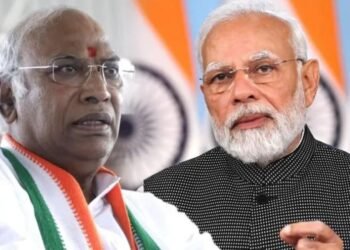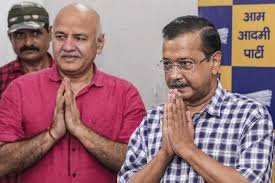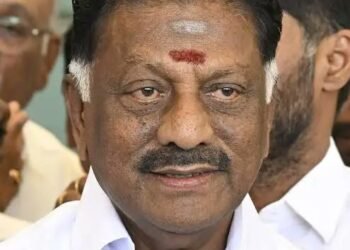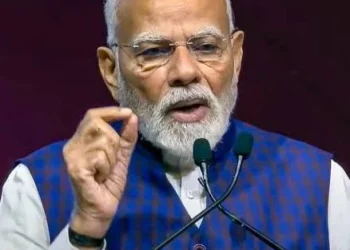In a dramatic turn of events, Delhi Chief Minister Arvind Kejriwal was arrested by the Enforcement Directorate (ED) on Thursday following intense scrutiny and questioning at his official residence. The arrest comes in connection with the money laundering probe linked to the Delhi excise policy case, sending shockwaves through the political landscape of the national capital. (Also Read – Aam Aadmi Party to hold Nationwide Protest against Kejriwal’s Arrest)
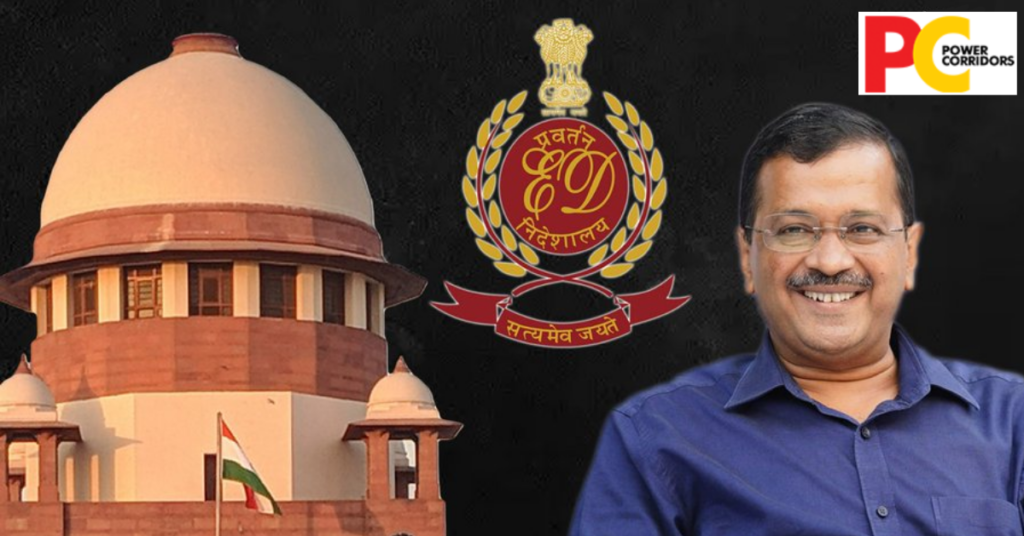
The ED’s action against Kejriwal unfolded after searches were conducted at his residence, and the agency grilled him for nearly two hours. Despite efforts to secure interim protection from coercive action, the Delhi High Court’s refusal paved the way for Kejriwal’s arrest, marking a significant escalation in the ongoing investigation.
Security measures were tightened outside Kejriwal’s residence, with Rapid Action Force (RAF) personnel forming a front-layer security cordon and multiple iron barricades erected as a second layer. Amidst the tense atmosphere, prominent AAP leaders, including Atishi and Saurabh Bharadwaj, rallied in support of Kejriwal, denouncing the arrest as a politically motivated conspiracy.
What is the Delhi Excise Policy Case? Is it a Scam?
The case that led to Kejriwal’s arrest revolves around alleged corruption and money laundering associated with the formulation and execution of the Delhi government’s excise policy for 2021-22, which was subsequently scrapped. The ED contends that AAP leaders received kickbacks amounting to ₹100 crore in connection with the excise policy, with Kejriwal’s name featuring prominently in the charge sheets filed by the agency.
Delhi CM and AAP national convenor Arvind Kejriwal arrested by the Enforcement Directorate (ED) in Excise policy case: Sources#ArvindKejriwal #EDRaids #ED #DelhiCM #PowerCorridors pic.twitter.com/SvulnWPbOo
— POWER CORRIDORS (@power_corridors) March 21, 2024
Manish Sisodia and Sanjay Singh, key AAP figures, are already in judicial custody regarding the case. Kejriwal’s repeated refusal to comply with eight summons issued by the ED since November 2023 has intensified the scrutiny surrounding the case.
The ED alleges that a conspiracy was orchestrated by political leaders, including Kejriwal, Sisodia, and K Kavitha (KCR’s daughter), in the formulation of the Delhi excise policy. It is claimed that a South Group, comprising businessmen Sarath Reddy, Magunta Srinivasulu Reddy, and K Kavitha, obtained nine zones out of 32 in Delhi under the new excise policy 2021-22. The policy, characterized by extraordinarily high-profit margins for wholesalers and retailers, was allegedly designed to funnel kickbacks to AAP leaders.
Also read: ED officers detain Delhi CM Arvind Kejriwal in connection with Delhi excise policy
Delhi Liquor Policy Case Explained in 5 points
- The investigation revolves around the Delhi liquor sales policy introduced in 2021, which was subsequently withdrawn. The Enforcement Directorate (ED) has uncovered fresh evidence and has now questioned Chief Minister Arvind Kejriwal about the case.
- The policy deviated from norms by privatizing liquor sales, allowing only private shops to sell liquor. Its primary objectives were to curb black marketing, increase revenue, and enhance consumer experience. Home delivery of liquor, extended operating hours till 3 am, and unlimited discounts were also permitted. The government reported a significant 27% increase in income, generating around ₹8,900 crore.
- The reforms faced opposition from the Economic Offences Wing of the Delhi Police, reporting to the BJP-led central government and Lieutenant Governor VK Saxena. Mr. Saxena called for a Central Bureau of Investigation (CBI) probe based on alleged rule-bending and undue benefits to liquor licensees.
- Manish Sisodia, Deputy CM, faced scrutiny, with the CBI raiding his home but finding no incriminating evidence. Additionally, the Enforcement Directorate (ED) initiated an investigation into the Delhi liquor controversy, alleging money laundering. They asserted that a liquor consortium known as the “South Group” disbursed a minimum of ₹100 crore in kickbacks to AAP for its electoral campaign in Goa through one of the detained businessmen. ED claimed the policy caused a ₹ 2,800 crore loss to the government.
- AAP dismissed all charges as politically motivated and pledged cooperation with investigators. Arvind Kejriwal defended the policy, claiming it was transparent and in the public’s best interest. However, the ongoing investigations and arrests have intensified the political turmoil surrounding the case.
AAP, INDI-Alliance Call Kejriwal’s Arrest ‘Anti-Democratic’
In response to the arrest, AAP leaders have vehemently denounced the allegations as baseless and politically motivated. Atishi labeled it a “political conspiracy,” emphasizing Kejriwal’s determination to continue serving as Delhi’s chief minister. Delhi Police detained Atishi on Friday for protesting Kejriwal’s detention.
#WATCH | AAP Delhi Minister Atishi detained by police during party's protest at ITO in Delhi
Aam Aadmi Party is protesting against CM Kejriwal's arrest by ED in excise policy case pic.twitter.com/OFHetwsKNH
— ANI (@ANI) March 22, 2024
As the investigation unfolds and legal proceedings progress, the ramifications of Kejriwal’s arrest reverberate across Delhi’s political landscape, shaping the narrative for the upcoming IPL 2024 season and beyond.




